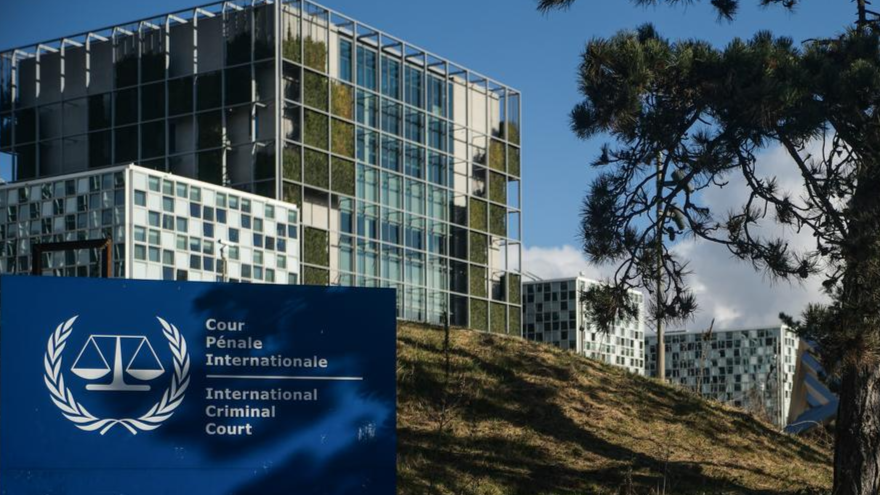In a decisive move that has reverberated across international justice circles and diplomatic corridors, Niger, Burkina Faso, and Mali have formally announced their withdrawal from the International Criminal Court (ICC). Their joint statement, issued on 22–23 September 2025, lambasts the ICC as what they describe as a “neo-colonial instrument of repression” — an accusation that marks a significant rift in relations between the three Sahelian states and longstanding international legal norms.
The decision reflects their deepening frustration with what they perceive as selective justice, external interference, and legal double standards. For more than two decades, these countries have been signatories to the Rome Statute, the treaty that underpins the ICC. But over time, they say, the Court has failed to prosecute numerous gross violations — war crimes, genocide, crimes against humanity — especially when such cases involve states or actors aligned with Western powers. In their view, the ICC has become less a guardian of justice and more a tool for external policing of weaker states.

Table of Contents
Reasons Behind the Exit: More Than Just Discontent
The three countries’ statement outlines multiple grievances:
- They argue the ICC has been inexplicably silent on many accusations of serious violations, choosing only certain cases while overlooking others.
- They assert that the Court serves as an instrument for imposing external judgments, particularly by powers they view as still wielding influence in former colonial territories.
- They emphasise a commitment to building indigenous legal and justice mechanisms — forms of accountability drawn from local norms rather than international courts.
- Sovereignty is central: the withdrawal is framed as an exercise in reclaiming their right to self-determination and protecting state autonomy.
The process of withdrawal will take time. Under the rules of the Rome Statute, a country’s exit only becomes effective one year after formal notification to the UN Secretary-General.

Context: Political Shifts, Alliances, and Regional Reorientation
This announcement is not happening in a vacuum. It is part of a broader realignment in West and Central Africa, particularly following a string of military coups and rising dissatisfaction with Western influence.
Some of the key contextual threads:
- Each of the three countries has been under military rule since successful coups: Mali (2020), Burkina Faso (2022), and Niger (2023).
- The trio has formally exited the Economic Community of West African States (ECOWAS) and formed a new bloc called the Alliance of Sahel States (AES). This reflects a preference for regional cooperation under their own terms, instead of ECOWAS, which has often pushed for democratic transitions.
- There has been a pivot in diplomatic and security partnerships: distancing from former colonial powers (especially France), and closer ties with non-Western states, including Russia.
Implications and Reactions: What This Means Moving Forward
The exit of these three states from the ICC carries wide-reaching implications. Below are some of the likely outcomes, challenges, and possible responses:
- Justice Gaps & Accountability Risks
Critics warn that without the ICC’s oversight, abuses during internal security operations — many of which have already been alleged by human rights organisations — may go unpunished or inadequately addressed. There is concern over whether local systems possess both the capacity and impartiality to prosecute serious international crimes. - International Relations & Diplomatic Fallout
The decision is likely to strain relations with states and bodies that support or rely on the ICC, including many Western governments, the United Nations, and human rights NGOs. It could affect foreign aid, security cooperation, and legitimacy in international fora. - Strengthening of Alternative Mechanisms
The three countries say they will develop indigenous mechanisms for handling crimes against humanity, war crimes, etc. This could lead to new norms of accountability grounded in local legal traditions — though it’s uncertain exactly how these will be structured, funded, or accepted by citizens and the international community. - Precedent for Other Countries
Their move may encourage other nations discontented with the ICC to explore exits or renegotiate their relationship with international justice bodies. It raises questions about the universality and durability of these institutions. - Effect on ICC’s Legitimacy
Membership departures of this kind challenge the perception of the ICC as impartial and globally representative. The ICC might face increased pressure to reform, address critics’ concerns, and clarify how selective prosecutions or perceived injustices will be handled.

A Complex Crossroads
Niger, Burkina Faso, and Mali’s exit from the ICC is not merely a legal or bureaucratic act; it is a powerful political statement. Framed as rejecting neo-colonial structures, it signals a broader realignment of power, identity, and justice in the Sahel. Whether this decision brings greater accountability, international legitimacy, or internal stability will depend largely on how these countries build out their promised domestic mechanisms — and how the international community responds.
For now, the phrase “neo-colonial institution” captures much more than a critique of the ICC; it reflects a larger dissatisfaction with how post-colonial sovereignty, legal norms, and international oversight interact. As the year advances and their withdrawal takes full effect, the world will be watching closely: can the gap left by the ICC be responsibly managed? Will alternatives rise to meet the standard? Or will this move deepen vulnerability and impunity in the region?
Join Our Social Media Channels:
WhatsApp: NaijaEyes
Facebook: NaijaEyes
Twitter: NaijaEyes
Instagram: NaijaEyes
TikTok: NaijaEyes















![Mr Macaroni Drops Blistering Remark: ‘APC Filled with Most Corrupt People’ as He Slams Tinubu’s Controversial Pardon for Criminals=]] Mr Macaroni](https://naijaeyesblog.com/wp-content/uploads/2025/03/Mr-Macaroni-1-1-180x135.avif)
























